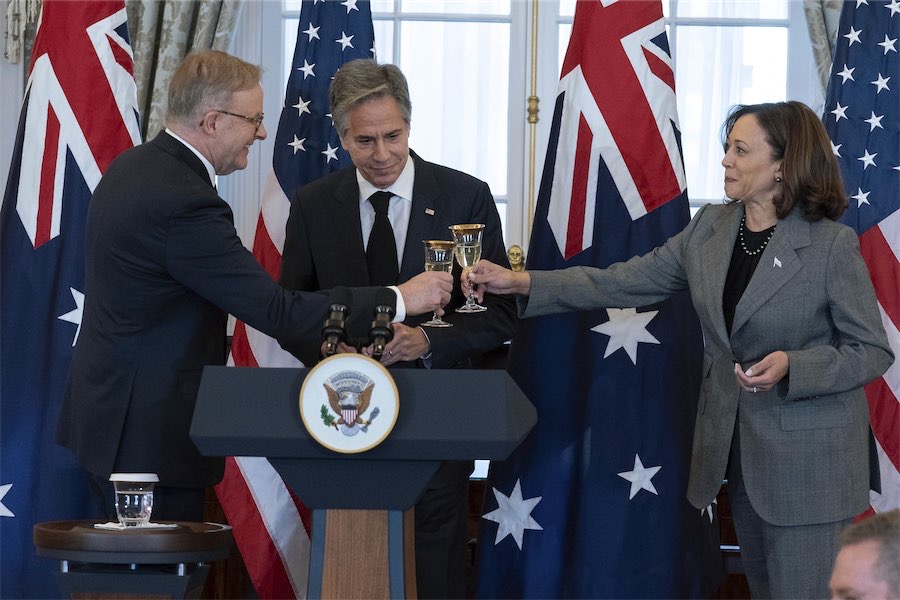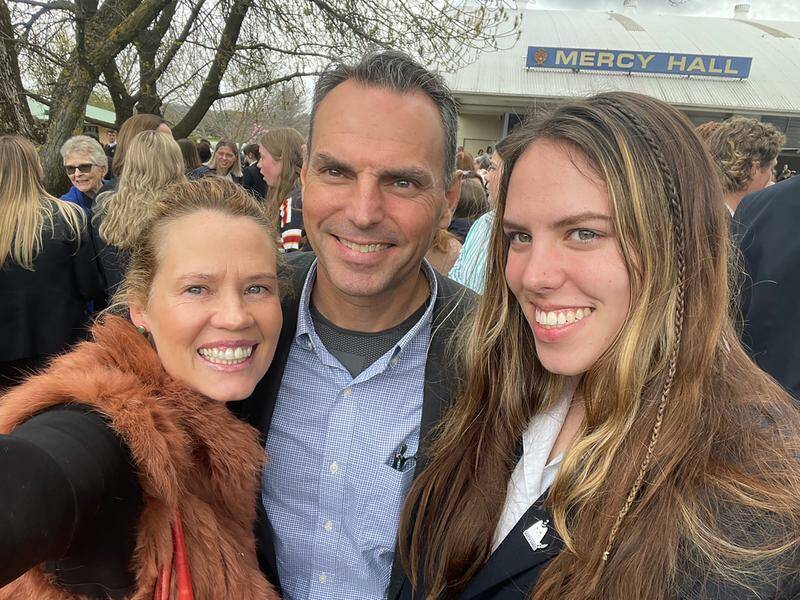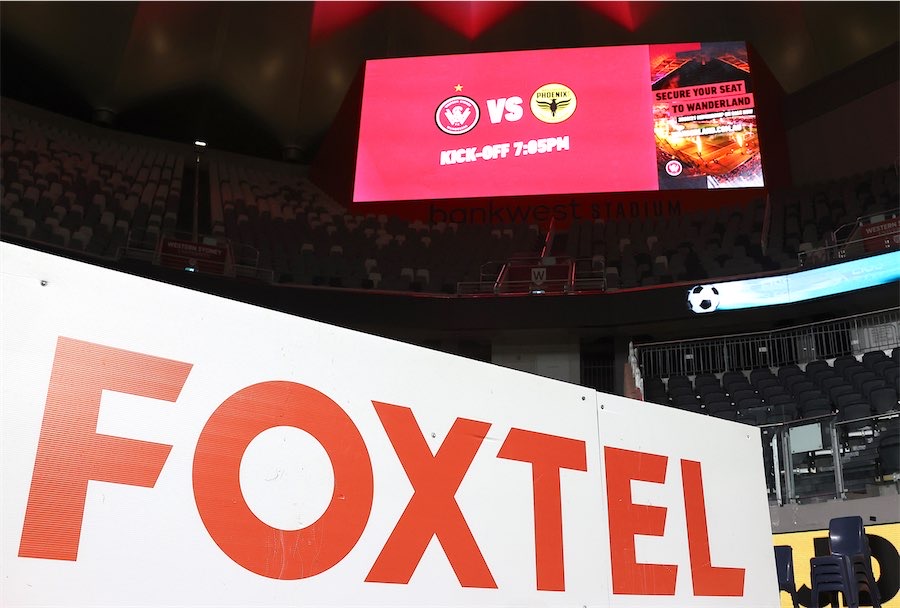
Anthony Albanese has wrapped up an official visit to Washington DC, welcoming US efforts to maintain open lines of communication with China.
“As a great American president… proved 60 years ago, during the Cuban Crisis, the true measure of a superpower’s strength is the ability to pull the world back from the brink of conflict,” Mr Albanese said.
He was giving a keynote address at the State Department, referencing President John F Kennedy’s actions in 1962 to avert nuclear war.
“Once again, that has become the test of our time,” he said.
“China has been explicit: it does not see itself as a status-quo power.
“It seeks a region and a world that is much more accommodating of its values and interests.”
Mr Albanese said it was the responsibility of every nation that had benefited from the stability and prosperity of the international rules-based order to work together and protect it.
Measures included securing national sovereignty, protecting freedom of navigation and upholding human rights.
“And working together to maintain peace – not just in the Taiwan Strait, but wherever it is at risk,” Mr Albanese said, before leaving the US.
He said Australia had been working to stabilise its relationship with China through a “patient, calibrated and deliberate approach” ahead of his visit to Beijing and Shanghai in November.
“We are two nations with very different histories, values and political systems,” the prime minister said.
“Australia will always look to co-operate with China where we can, disagree where we must and engage in our national interest.
“We are not looking for conflict. We are seeking to prevent it.”
At the state lunch, co-hosted by US Vice President Kamala Harris and Secretary of State Antony Blinken, Mr Albanese witnessed the signing of the Technology Safeguards Agreement to allow US rockets and satellites to be launched from Australia.
On his last day in Washington DC, he met the new Speaker of the US House of Representatives Mike Johnson.
With Republicans having finally cleared the speakership battle clogging the House, Mr Albanese left hoping Congress would pass legislation relating to nuclear-powered submarines and the AUKUS defence partnership.
He also met with the Friends of Australia Congressional Caucus and visited the Federal Emergency Management Agency (FEMA) headquarters.
Members of the caucus are seeking legislative reform to the US International Traffic in Arms Regulations to advance the objectives of the AUKUS partnership.
In a statement after his FEMA visit, Mr Albanese praised the courage and dedication of Australian and US emergency management personnel.
“With over 100 years of mateship, Australia and the United States have a proud history of helping each other in times of need, including when faced with natural disasters.”
Mr Albanese said the US provided firefighting support to Australia during the Black Summer bushfires and Australia sent a firefighting air tanker to Idaho to assist across six US states.
He referred to the fire-fuelled partnership earlier in the week when presenting US President Joe Biden with a painting by Australian artist Katherine Boland that depicts the renewal of native flora after a bushfire.
The prime minister, a vinyl record collector, received a custom signature turntable.
Farewelling the prime minister, Mr Blinken noted their shared affection for music.
“He’s also known… as ‘DJ Albo’,” he said.
“He’s known to spin a mean disc.”
Who can be trusted?
In a world of spin and confusion, there’s never been a more important time to support independent journalism in Canberra.
If you trust our work online and want to enforce the power of independent voices, I invite you to make a small contribution.
Every dollar of support is invested back into our journalism to help keep citynews.com.au strong and free.
Thank you,
Ian Meikle, editor





Leave a Reply